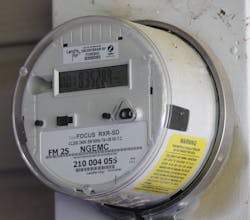Some AMI Efforts Need Advanced Marketing and Strategic Help
In recent weeks, it is noteworthy that some of our fellow utility personnel have been encountering difficulties in gaining regulatory approval or full customer acceptance of advanced metering infrastructure (AMI) efforts.
Three stories in local news outlets regarding efforts by utilities to install advanced metering infrastructure include three utilities:
- City Utilities of Springfield, Missouri
- Dothan Utilities, in Dothan, Alabama
- NB Power, in New Brunswick, Canada
City Utilities of Springfield, Missouri, is already in its second year of a self-funded multi-year Advanced Metering Infrastructure roll-out, for electric and gas meters. But a recent local Ozarks Public Radio broadcast and article, “Advanced Metering Infrastructure Being Installed Across Springfield” by the station KSMU reports some customers are concerned that the utility “will be able to see what's going on in their homes,” even though the utility has provided assurances to the contrary.
A driver for the AMI work is "so we can get instantaneous reads," said City Utilities’ AMI project manager, Chris Hill, who aptly added that "we're metered the same way for the past 50 to 75 years," Hill said, "and it's time to move on."
Of interest is the fact that few of City Utilities’ customers are opting out of the new system. According to Hill, out of approximately 53,000 customers contacted so far in the process of installing of the new so-called "smart meters," only around 150 have opted out, some because they fear possible health impacts of RF Electromagnetic Radiation emitted by the new meters.
The KSMU piece states that “The Weston A. Price Foundation claims on its website that exposure to electromagnetic radiation from smart meters can cause DNA damage, abnormal genetic and hormonal changes and pregnancy complications, among other things,” but they quotes Chris Hill of City Utilities saying that the level of RF emitted by the new meters is lower than other things that are commonly found in a home, including baby monitors and cell phones. Hill added that the FCC recently put out a statement “that one year of 15 minute-a-day calls on a cell phone is the same as 375 years of standing next to a smart meter," said Hill, who added that WiFi also emits more RF than smart meters, according to Hill.
Dothan Utilities, in Dothan, Alabama
As reported this week in the Dothan Eagle article “Smart meter pilot program nearing launch,” a pilot program was approved by the city commission that will lead to a full two-year AMI roll-out across the utilities’ 31,000 meters if the 90-day pilot is successful. Along with reduction in meter-reading expense, other key goals reported for Dothan’s AMI program are outage reporting automatically, so as to no longer need to rely upon customer calls regarding outages, and also the ability to perform automatic shut-off of electric service.
The Dothan Eagle article reports that the cost of full implementation will be about $5 million, but the Alabama Municipal Electric Authority will foot a significant portion of the bill, leaving the city a bill of a few hundred thousand dollars. The Alabama Municipal Electric Authority is a state-wide association serving the state’s municipal electric utilities.
NB Power, New Brunswick, Canada
For utilities that do not enjoy the ease of payment shown in the case of Dothan Utilities, the AMI project approval process can become a lot more complicated. A case in point was reported this week in the CBC Canada news piece, “NB Power's smart meter program among plans under microscope at EUB hearing.”
NB Power’s 12 day hearing will also include regulatory scrutiny of a proposal to enact new surcharges to help pay for unexpected events (e.g. storm damage).
NB Power`s $122.7-million plan to deploy AMI, including smart meters for all of its 350,000 customers, would roll out around New Brunswick over a three-year period.
The plan includes a focus on Time of Use rates, to “steer electricity consumption away from peak hours,” and also would “allow for homeowners to install their own generation, like solar panels, or invest in large battery storage units to load up on low-cost nighttime power and sell what they don't need back to the utility.”
The aggressive new package of consumer energy conservation initiatives will help flatten out expensive wintertime consumption peaks on its system and is the key to lowering costs and avoiding the construction of new power plants.
"NB Power believes AMI and energy smart investments are essential for its customers and should be approved by the board," the utility said in its opening statement, adding that “delay in making these investments, particularly in AMI delays progress in reaching all of the targets for reduction of energy and peak demand."
Interestingly, the CBC articles points out that at least two outside experts have been hired to evaluate NB Power's smart meter plan — and who will testify during the hearing — question the economics of the proposal. "With increased likelihood that NB Power will be able to recover all costs associated with extraordinary events, there is less pressure on the company to control those costs," stated U.S. energy consultant Synapse Energy.
“There will be an intense examination of the smart meter issue in front of the board,” stated Public Intervener Heather Black. "It will be fully debated," said Black. "When there's such a big project at hand, questions come up. Has it been properly planned for are the costs and benefits properly and accurately estimated?"
About the Author
Peter Arvan Manos
Utility Industry Analyst
Peter Manos is Director of Research for Electric Power & Smart Grid, on the Energy Sector team at ARC. He analyzes the latest trends across People, Process, and Technology to uncover business and digital transformation best practices for electric, gas, and water utilities. He can be reached at [email protected]
